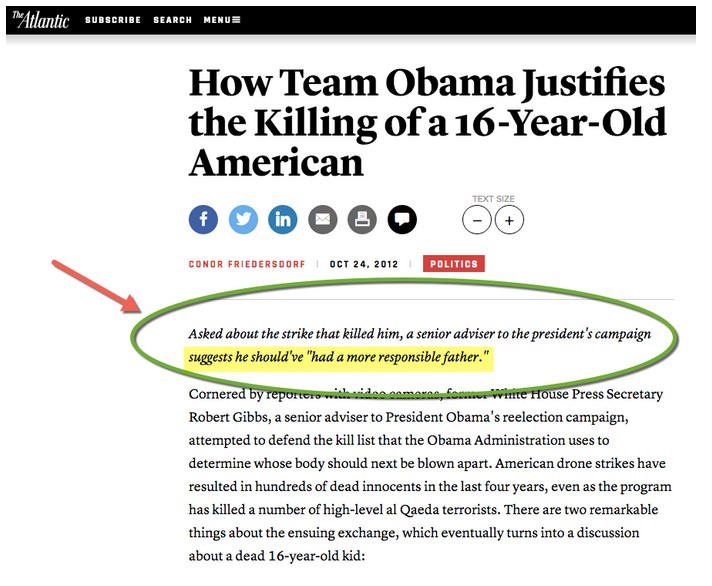Donald Trump’s Policies Are Not Anathema to
U.S. Mainstream but an Uncomfortable
Reflection of It
By Glenn Greenwald

March 04, 2016 "Information
Clearing House" - "The
Intercept " -
The
political and media establishments in the
U.S. – which have jointly wrought so much
destruction, decay, and decadence – recently
decided to unite against Donald Trump. Their
central claim is that the real estate mogul
and long-time NBC reality TV star advocates
morally reprehensible positions that are far
outside the bounds of decency; relatedly,
they argue, he is so personally repellent
that his empowerment would degrade both the
country and the presidency.
In
some instances, their claim is plausible:
there is at least genuine embarrassment if
not revulsion even among America’s political
class over Trump’s proposed mass deportation
of 11 million human beings, banning of all
Muslims from entering the country, and
new laws to enable him to more easily sue
(and thus destroy) media outlets which
“falsely” criticize him. And his signature
personality brew of deep-seated
insecurities, vindictive narcissism,
channeling of the darkest impulses, and
gaudy, petty boasting is indeed uniquely
grotesque.
But
in many cases, probably most, the flamboyant
denunciations of Trump by establishment
figures make no sense except as
self-aggrandizing pretense, because those
condemning him have long tolerated if not
outright advocated very similar ideas,
albeit with less rhetorical candor. Trump is
self-evidently a toxic authoritarian
demagogue advocating morally monstrous
positions, but in most cases where elite
outrage is being vented, he is merely a
natural extension of the mainstream
rhetorical and policy framework that has
been laid, not some radical departure from
it. He’s their id. What establishment
mavens most resent is not what Trump is,
does, or says, but what he reflects:
the unmistakable, undeniable signs of
late-stage imperial collapse, along with the
resentments and hatreds they have long
deliberately and self-servingly stoked but
which are now raging out of their control.
Two
of the most recent, widely discussed
anti-Trump outrage rituals – one from
Wednesday and the other from last night’s
Fox News debate – demonstrate the sham at
the heart of the establishment display of
horror. This week, American political and
media figures from across the spectrum
stood and applauded a
tawdry cast of neocons and other assorted
war-mongers who are responsible for
grave war crimes, torture, kidnappings,
due-process-free indefinite imprisonment,
and the worst political crime of this
generation: the attack on and destruction of
Iraq.
These five dozen or so extremists (calling
themselves “members of the Republican
national security community”) were the toast
of the town because they published
an “open letter” denouncing Trump on the
ground that his “own statements lead us to
conclude that as president, he would use the
authority of his office to act in ways that
make America less safe, and which would
diminish our standing in the world.” This
was one of their examples:
His embrace of the expansive use of
torture is inexcusable.
Most decent human beings, by definition,
would express this sentiment without
including the qualifying word “expansive.”
Even Ronald Reagan, whom virtually all the
signatories claim to idolize,
advocated for and signed a treaty in
1988 which stated that “no
exceptional circumstances whatsoever . . . may
be invoked as a justification of torture”
and that “each State Party shall ensure that
all acts of torture are
offences under its criminal law.” The taboo
is on “all acts of torture,” not its
“expansive use”: whatever that means.
But
the group signing this anti-Trump letter
can’t pretend to find an embrace of torture
itself to be “inexcusable” because most of
them implemented torture policies while in
government or vocally advocated for them. So
instead, they invoke the Goldilocks Theory
of Torture: we believe in torture up
to exactly the right point, while Trump is
disgraceful because he wants to go beyond
that: he believes in “the expansive use of
torture.” The same dynamic drove yesterday’s
widely cheered speech by Mitt Romney, where
the two-time failed GOP candidate denounced
Trump for advocating torture while literally
ignoring his
own clear pro-torture viewpoints.
Here we see the elite class agreeing to
pretend that Trump is advocating views that
are inherently disqualifying when – thanks
to those doing the denouncing – those views
are actually quite mainstream,
even popular, among both the American
political class and
its population. Torture was the official
American policy for years. It went way
beyond waterboarding. One
Republican president ordered it and his
Democratic successor
immunized it from all forms of
accountability, ensuring that not
a single official would be prosecuted for
authorizing even the most extreme
techniques,
ones that killed people – or even
allowed to be sued by their victims.
Many of the high officials most responsible
for that torture regime and who defended
it – from
Condoleezza Rice and
John Brennan – remain not just
acceptable in mainstream circles but hold
high office and are virtually revered. And,
just by the way, both of Trump’s main rivals
–
Marco Rubio and
Ted Cruz – refuse to rule out classic
torture techniques as part of their
campaign. In light of all that, who takes
seriously the notion that Trump’s advocacy
of torture – including beyond waterboarding
– places him beyond the American pale? To
the contrary, it places him within its
establishment mainstream.
Then there’s the Outrage du Jour from last
night. A couple of weeks ago, George W.
Bush’s NSA and CIA chief, Gen. Michael
Hayden,
claimed that members of the military
would never follow Trump’s orders
if it meant committing war crimes such as
torturing detainees or killing a terrorist’s
family members (perish the thought). When
asked about this last night, Trump
insisted that the U.S. military would do
so: “They’re not going to refuse. Believe
me,” he said. “If I say do it, they’re going
to do it. That’s what leadership is
about.” Of all the statements Trump made
last night, this was the one
most often cited by pundits as being the
most outrageous, shocking, disgusting, etc.
Even bona fide war criminals such
as the Bush White House’s pro-invasion and
torture propagandist
got in on the moral outrage act:

But
is there any doubt that Trump is right about
this? Throughout the 14-year-old War on
Terror, a handful of U.S. military members
have
bravely and
nobly refused to take part in, or
vocally denounced, policies that are
clear war crimes. But there was no shortage
of people in the military, the CIA and
working for private American contractors who
dutifully carried out the most heinous
abuses and war criminality. The military
official in charge of investigating War on
Terror policies, Gen. Antonio Taguba,
said this in 2008:
After years of disclosures by government
investigations, media accounts and
reports from human rights organizations,
there is no longer any doubt as to
whether the current administration has
committed war crimes. The only question
that remains to be answered is whether
those who ordered the use of torture
will be held to account.
In
2009, Gen. Barry McCaffrey
said: “We tortured people unmercifully.
We probably murdered dozens of them during
the course of that, both the armed forces
and the C.I.A.” The notion that the U.S.
intelligence and military community will
collectively rise up in defiance of the
Commander-in-Chief if they are ordered to
obey polices that are illegal is just
laughable.
It’s obviously a pleasing fiction to believe
– it produces nice, nationalistic feelings
of nobility – but everything in the past
decades proves that Trump is right when he
says “they’re not going to refuse.” Some
likely would, but nowhere near enough to
preclude the policies being carried out. In
fact, the primary argument used to justify
immunizing America’s torturers is that they
were just following orders as approved by
John Yoo and company: reflecting a moral
code which dictates that, even when it comes
to plainly illegal policies, obedience is
preferable to defiance.
Then there’s the feigned horror over Trump’s
proposal to kill the family members of
terrorists. Though they claim they don’t do
it deliberately, the fact is that this is
something that both the U.S. and Israel,
among others, has routinely done for years:
they repeatedly
bomb people’s homes or work places,
killing innocent people
including family members, and then
justify it on the ground that a
terrorist was among them. While they claim
they don’t target terrorists’ family
members, they
certainly target their homes and other
places family members are
certain to be found.
When a U.S. drone strike in 2011 killed the
U.S. citizen Anwar al-Awlaki in Yemen, and
then another drone strike two weeks later
killed his 16-year-old American son
Abdulrahman (who nobody claimed was
involved with terrorism), former White House
Press Secretary Robert Gibbs
justified that this way:

If
you really think you can locate fine
distinctions – we merely keep killing
the children, spouses and other family
members over and over by accident, not by
purposely targeting – at least don’t
pretend that what Trump is advocating is
something our civilized minds have never
previously encountered. He may be more
gauche for saying it aloud and gleefully
justifying it rather than feigning sorrow
over it, but the substance of what he’s
saying – despicable though it is – is hardly
categorically different from what the U.S.
government and its closest allies actually
do over and over. And that’s to say nothing
of the unpleasant fact which we’re all now
supposed to ignore lest we be smeared as
Trump supporters: that even as he advocates
clear war crimes, he also, in some
important cases, is
advocating policies and
approaches less militaristic and
war-mongering than not only
his GOP rivals but the
war-loving leading Democratic
candidate as well.
As
for his starkly disgusting personal
qualities, none of these is new. Anyone who
has lived in New York has known for decades
that
this is who and what Donald Trump is.
And yet he was fully integrated within and
embraced by America’s circles of power and
celebrity, including by those who now want
to pretend to find him so hideously
offensive. As The New York Times
put it in December: “For years,
President Bill Clinton was the best friend
Donald J. Trump always hoped to have.”

One
can argue, with some validity, that there’s
value in collectively denouncing the most
extreme expressions of imperial violence and
war criminality in the context of a national
election, even if it’s tinged with some
inconsistency and hypocrisy. That’s fine,
provided doing so does not serve to
consecrate feel-good fantasies about
American government and society. Finding a
villain we can collectively condemn by
consensus is a natural tribalistic desire:
declaring someone uniquely evil and then
denouncing him is an affirmation of one’s
own virtue. It feels good. As an excellent New
York Times Op-Ed last week by
psychology researchers at Yale
explained, “human beings have an appetite
for moral outrage” because it’s often “a
result of a system that has evolved to boost
our individual reputations.”
Collective moral condemnation can be
genuinely valuable if it’s grounded in
honest moral line-drawing. But when it’s
driven largely by self-delusion and
self-glorification – by the fiction that
what is being condemned resides in a
different moral universe rather than just a
couple of degrees further down the road – it
can be quite destructive: ennobling that
which is decisively ignoble.
Over the past few weeks, there has been a
tidal wave of establishment denunciations of
Donald Trump. It’s now not only easy to do
but virtually obligatory. But very few of
those denunciations contain any real
examination of what accounts for his
popularity and appeal: why a message
grounded in contempt for the establishment
resonates so strongly, why anxiety and anger
levels are so high that the ground is so
fertile for the angry strongman persona he
represents. That’s because answering that
question requires what U.S. establishment
guardians most fear and hate:
self-examination.